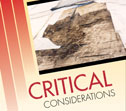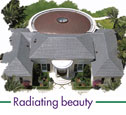It's hard to believe that in 15 short months, voters once again will head to the polls for the U.S. presidential and congressional elections. It's also hard to believe the campaign season began months ago, and candidates have been crisscrossing the U.S. hosting fundraisers and participating in debates.
With the 2012 elections heating up fast, it's important for roofing professionals to be fully engaged in the process.
Raising funds
Next year's presidential and congressional elections are sure to be the most expensive in U.S. history, costing candidates billions of dollars. So where does that money come from?
Candidates for president, the House of Representatives and Senate have numerous sources from which they raise campaign funds. However, most of the money comes from individuals and political action committees (PACs).
Since 1905, corporations and unions have been banned from contributing money to political campaigns. During the following 70 years, various statutes were created to limit the disproportionate influence of wealthy individuals and companies by creating contribution limits, regulating spending and increasing transparency by disclosing sources of campaign financing.
In 1971, Congress consolidated the statutes and further strengthened regulations and spending limits by enacting the Federal Election Campaign Act (FECA). In 1975, FECA was amended to create the Federal Election Commission, an independent agency tasked with administering and enforcing the laws governing federal elections' financing, including the ban on corporate and union funds.
Although corporations and unions are not allowed to contribute directly to elections, they are able to create separate segregated funds—PACs—to support federal candidates or political parties. A PAC is able to raise voluntary funds from a restricted class of individuals who choose to pool their money for a common cause. Under federal election law, individuals and PACs are limited in the amount of money they can contribute to candidates and other PACs.
For the 2011-12 election cycle, individuals may give $2,500 per candidate, per election ($5,000 total to a candidate per cycle) and $5,000 annually to a PAC. PACs may give $5,000 per candidate, per election ($10,000 total to a candidate per cycle).
ROOFPAC
ROOFPAC is NRCA's federally registered PAC dedicated to supporting pro-business candidates. Of the nearly 4,600 registered PACs, ROOFPAC, comprising contributions from NRCA members, is the only PAC dedicated to and run solely by roofing contractors.
Established in 1990, ROOFPAC has grown from raising a modest $3,200 to raising and spending nearly $350,000 during the 2009-10 election cycle, making it the third-largest specialty contractor PAC. As an integral part of NRCA's government relations strategy, ROOFPAC's mission is to be a full-time advocate in Washington, D.C.; advance NRCA's legislative and political interests; educate members of Congress about NRCA's public policy agenda; and help elect candidates who support issues important to the roofing industry. NRCA has compiled a substantial list of legislative and regulatory victories, and ROOFPAC has been a key part of those successes.
NRCA's PAC Advisory Committee, composed of industry professionals from the roofing contracting, manufacturing and distributing segments, is tasked with developing programs and events to raise funds, as well as approving the list of candidates who receive contributions. During the 2010 elections, 88 percent of ROOFPAC-supported candidates won their elections, including Sen. Mike Crapo (R-Idaho), who sent a personal note of thanks to NRCA stating ROOFPAC's contribution helps him "fight for more effective and efficient government."
Involvement is important
NRCA strongly encourages civic engagement in all forms, from volunteering for a campaign to voting to making political contributions as an individual or through a PAC. As the 2012 elections continue to intensify and candidates race to raise needed campaign funds, know that your opinions and contributions make a difference.
Bethany Field is NRCA's manager of public affairs.



